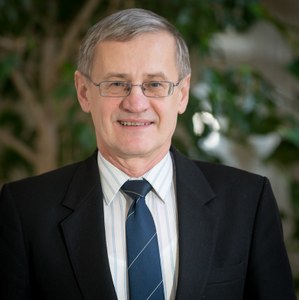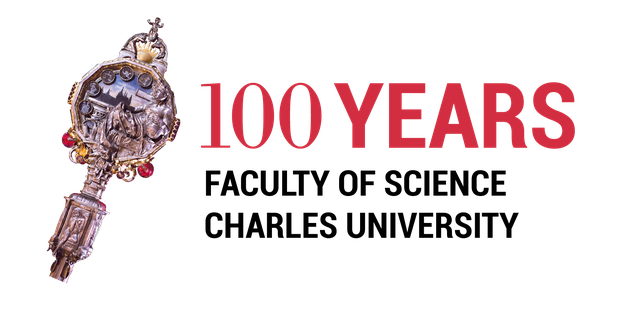Our faculty turns one hundred!
 Jiří Zima
Jiří ZimaDean
The foundation for the Faculty of Science was the result of the rapid development in science in the preceding century and the major discoveries that changed the world and contributed to the leap development in all areas of the life of society. It was the first faculty to be added to the four founding faculties since 1348, spinning off from the Faculty of Arts. In addition to teaching the current subjects of biology, chemistry, geology and geography and the teaching of those subjects (as well as many modern subjects), the Faculty of Science also taught mathematics, physics, pharmacology and astronomy at the time. In fact, the first Dean of the faculty was a mathematician, Professor Karel Petr. The subsequent development of the university led to the foundation of other individual faculties, of which there currently are 17. Almost 850 students and 15 teachers in the first academic year 1920/1921 clearly illustrate that the teaching of science subjects was ready for independence. The faculty’s development during the past 100 years was certainly not peaceful or devoid of conflict, including the World War II interruption, but it was definitely freer and more open in comparison with arts. In 2020, there are almost 5,000 students at all stages of studies, taken care of by a total of more than 1,000 employees, including 400 academic workers.

Measured by the number of students, the faculty’s volume has increased at least six times, but the faculty’s premises did not develop at a similar rate by far, so the majority of teaching and scientific work today takes place in historic buildings erected prior to the faculty’s foundation that were only extended and refurbished in part at a later stage. The opening of the BIOCEV facility in Vestec near Prague, a workplace shared between Charles University and the Czech Academy of Sciences, was a major feat in recent years that addressed the great pressure for new premises to an extent, but certainly did not resolve the issue of the excessively high density of employees and students per unit of workplace area. All sections are currently focusing on the Albertov Campus project, which is being prepared to address the space issues that the Faculty of Science has been facing for a long time along with the First Faculty of Medicine and the Faculty of Mathematics and Physics. It should also provide development space allowing the university to welcome new teams.
Many teachers and scientists have worked at the faculty over the past 100 years; they were luminaries in their field and some of them achieved international renown. To mention a few of them, we can recall Nobel Prize winner Prof. Jaroslav Heyrovský, biologist Bohumil Němec, scientist, teacher and politician Vladimír Krajina, geographer and the founder of the Map Collection Václav Švambera, and geologist František Slavík. Excellent scientists work at the faculty today and the future will assess their contributions, so their names may eventually be mentioned in honour alongside those named above.

One of the areas where there is still room for improvement for the Faculty of Science is the internationalisation of studies, which is where we cannot compare ourselves with the faculties of medicine. There are objective and well-known causes for this disproportion, but they should not serve as an excuse. Even in this area, though, we can see progress primarily in connection with Erasmus students. Many colleagues currently lecture on master’s degree subjects in English, paving the way for opening study programs in English. As a faculty, our greatest strength may be in raising doctoral students. Scientific output from doctoral theses accounts for a major part of the faculty’s scientific production and has launched successful careers for many young scientists, including international internships, and we try to make sure that the best of them return to our faculty afterwards. Every year, our academic workers are successful in obtaining grants from the Czech Science Foundation and international grants including those provided by the European Research Council, as well as being involved in major, multi-million science projects such as the Charles University Centre for Advanced Materials and the Center for Research of Pathogenicity and Virulence of Parasites.
The faculty’s employees collaborate with their colleagues at many institutes of the Czech Academy of Sciences on a long-term basis, are in active contact with the teachers and students of the faculty’s affiliated high schools, address the general secondary school community via projects such as Přírodovědci.cz, participate in science and education fairs, organise open house events and fulfil the third role of universities. The faculty’s collections, museums and specialised libraries are available to both students and the general public. Several hundred people take organised professional training courses at the faculty every year. Managed by the faculty, the Botanical Garden of Charles University serves both teaching and relaxation purposes and is open to the public. Our employees regularly appear in the media and respond to the current developments and needs in society.
To conclude my brief introduction, I have to say that I have been extremely lucky to be able to continue the work of all Deans after 1989, namely my colleagues Vladimír Kořínek, Petr Čepek, Karel Štulík, Pavel Kovář and Bohuslav Gaš, leading a self-confident, stable, ever- developing and successful Faculty of Science of Charles University.
Document Actions